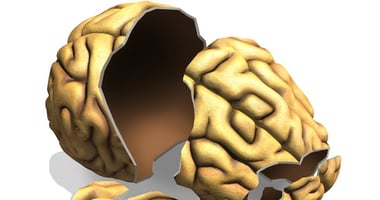People who experienced a traumatic brain injury (TBI) were three times more likely to die...
Traumatic Brain Injury in Older Adults May Increase Dementia Risk, Study Suggests
 |
Researchers from the University of California, San Francisco, examined health records of approximately 52,000 adults aged 55 and older diagnosed with a traumatic injury to compare risks for dementia between those who have experienced TBI and those with non-TBI-related trauma (defined as fractures excluding the head and neck).
The analysis showed that 8.9 percent of the participants with a history of TBI developed dementia, compared with 5.9 percent of those with traumatic injury to areas other than the head or neck. Data also showed that moderate to severe TBI was associated with an increased risk for dementia in those aged 55 or older, while mild TBI was associated with an increased risk for participants who were aged 65 or older.
In an accompanying editorial, Steven DeKosky, M.D., director of the Alzheimer's Disease Research Center at University of Pittsburgh and a professor of psychiatry, commended the researchers for using a very large database to examine dementia risk following significant trauma. The findings from the research, noted DeKosky, "will enable us to ask important questions, evolve new or more informed queries, and both lead and complement the translational questions that are before us." He concluded that because dementia is both a global problem and a pathological conundrum, the complementary use of big data and basic neuroscience analyses may offer the most promise in learning more about the overlap of TBI and cognitive decline.
To read more about TBI and its associated psychiatric sequelae, see the Psychiatric News article, "Traumatic Brain Injury: Why Psychiatrists Matter." For information about issues in the assessment and treatment of TBI, see Management of Adults With Traumatic Brain Injury from American Psychiatric Publishing.
(Image: Lightspring/shutterstock.com)





